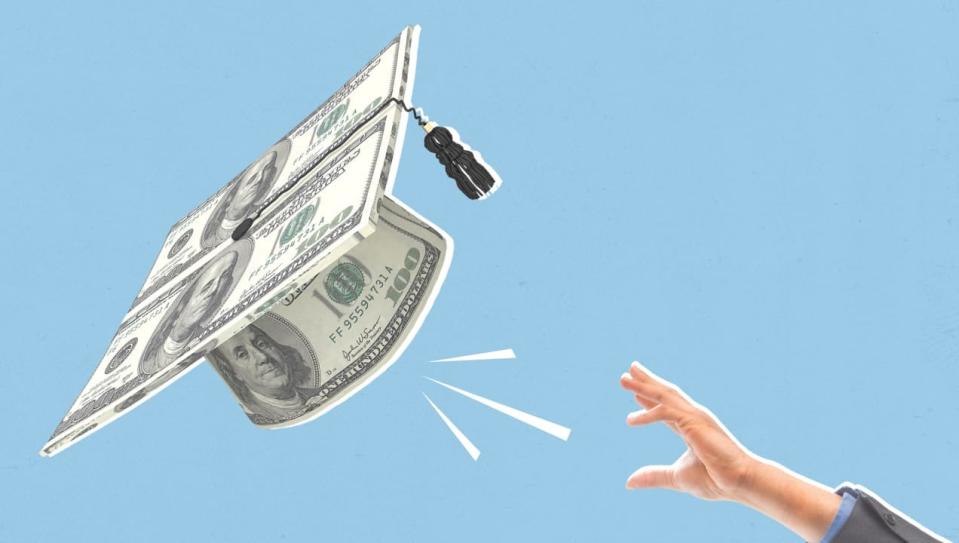Don't hate on Biden's student loan forgiveness plan. It helps us all
- Oops!Something went wrong.Please try again later.
The Biden administration’s Student Loan Debt Relief Plan has caused a furor among those who contend that the university-educated are receiving preferential treatment at the expense of hard-working and self-reliant tradespeople.
It’s wrapped in the language of fairness, but this discussion is class-divisive. And it misses the plan’s overarching vision and value.
1. We need to restore the middle class
First, consider that the plan is one part of the broad tapestry of social and economic policy initiatives to restore the middle class, to relieve Americans of debilitating and discriminatory burdens, and to counteract predatory loan practices.
According to the Project on Predatory Student Lending and the National Consumer Law Center’s Student Loan Borrower Assistance Project, “for decades, the predatory for-profit college industry has exploited the promise of higher education, perpetrating a massive fraud on students who are trying to build a better life.”
The industry, the project noted, specifically “targets low-income students, students of color, single parents and veterans. Many are the first in their family to attend college.”
2. Don't dismiss the value of higher education

Second, let us recognize the value of higher education as a pathway to economic empowerment for women, African Americans, veterans and first-generation students. These groups have been disproportionately impacted by student loan indebtedness and who will benefit most from the relief plan.
Nearly 90% of relief will help those with annual incomes of less than $75,000.
3. If we want to talk about fairness ...
Third, on the issue of fairness, on what moral ground do groups that have managed to game the system for their own benefit claim unfairness, when Biden’s action offers their fellow citizens the opportunity to climb the ladder from oppressive debt to middle class security?
What was fair about the use of taxpayer money with the 2010 Troubled Assets Relief program to bail out a financial system to the tune of $700 billion for questionable and exploitive business practices?
Another view: Student loan forgiveness doesn't fix the system
What’s fair when the Paycheck Protection Program for COVID-19 relief has been cited by Inspector General Michael Horowitz as the largest fraud in American history and from congressional opponents of the plan gained loan forgiveness for their questionable expenditures?
What is the beef with relieving contributing members of the community from burdensome debts that were incurred in the interest of personal growth, education and advancement – the benefits of which add to the national wealth?
Look past polarization to find a common good
The uproar over student debt forgiveness reflects the dysfunction and chronic polarization of our national discourse. It begs the question as to the appropriate means for redressing the imbalances in our system and invites skepticism as to whether the plan is a legitimate exercise of executive action, an overreach of presidential power, or a purely political move to garner votes in the upcoming elections.
It distracts us from the imperative of finding common ground and creative solutions to address the inequities and injustices in our social fabric. It perpetuates a combative narrative where one group’s gains are perceived as another group’s losses.
Instead, we need to rise above the classism furor of such debates and focus on the substance of our social contract. In the face of an ever-increasing wealth gap, in the face of new technologies that are transforming the workplace and earning power, in the face of challenges to the efficacy of our democracy and its institutions, we have no choice but to visualize the pursuit of fairness as a moral imperative and a shared adventure, free from the restraints of now politically irrelevant political ideologies.
This is the challenge at the heart of how we as a community need to define the common good.
Herb Paine is president of Paine Consulting Services, a social and political commentator, and former congressional candidate. Reach him at paineconsulting@cox.net; on Twitter: @HerbPaine.
This article originally appeared on Arizona Republic: Why Biden's student loan forgiveness plan helps us all

